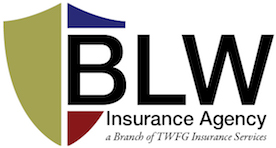Employment Practices Liability: More than Harvey Weinstein
The community college trustees looked around the table at each other.
Two months ago, the President of the college resigned after being confronted about unusual items on his expense reports. Today, he demanded his job back and threatened to sue for wrongful termination if the board didn’t reinstate him.
Wrongful termination? They hadn’t fired him!
What followed was nearly two years of contentious meetings, legal expenses, and bad press before a $468,000 settlement was reached. In addition, there were two years of legal fees to be paid.
Thankfully, the college had employment practices liability insurance (EPLI) to cover the settlement and legal fees. No programs or staff would have to be cut and the whole mess was finally over.
It was a situation the trustees never anticipated.
Truth is most business owners aren’t aware of the risk of being sued by their own employees and how quickly the costs can mount up.
Did you know you’re more likely to be sued by an employee than have a fire loss? Or that the average jury award is over $200,000?
Over the last 20 years, employee lawsuits have increased 400% and wrongful termination lawsuits are up more than 250%. It’s not a problem you can ignore.
Here’s what you need to know to protect your business.
Sexual harassment and discrimination
When you hear the term “employment practices liability”, sexual harassment is probably the first thing you think of — especially after the recent scandals hitting the news.
From Hollywood to Washington D. C., it seems like everyone is in the line of fire.
While the problem of harassment has been around forever, the sensitivity to it is much greater now.
In the 1990’s, a Miller Brewing Company executive was fired after a female employee complained about him talking about a sexually suggestive episode of Seinfeld around her. At the trial, the jury found that the act did not constitute sexual harassment and his termination of employment was illegal.
In today’s world, I’m not sure the jury would make the same decision.
Now, accusations hit social media instantly and the #metoo movement has shone an intense light on all types of unwelcome workplace behavior.
There are many more “hot buttons” for lawsuits than ever before. For example, sexual discrimination once was confined to promoting a man over a woman. Today it encompasses sexual orientation, gender identity, and much more.
And it’s not just big businesses at risk. Over 41% of employee lawsuits are against small businesses like yours.
Small Businesses are big targets
An insurance agency owner I know had an employee who showed up for work in the morning and then left after an hour. Because she didn’t have any accrued time off, her pay was docked.
The employee filed a complaint saying her pay couldn’t be docked if she showed up for work and then left because she was being paid a salary instead of an hourly wage.
The agency’s employment practices attorney explained that the employee was right!
The employee was paid the wages due, and her pay method was changed from salaried to hourly to avoid the problem in the future. Not surprisingly, the employee
left to find another salaried position where she could work only when she wanted to.
As a business owner, can you imagine having your staff walk out the door in the middle of the morning, leaving customers waiting in your lobby? And still having to pay them for the full day? It’s crazy!
Another small business owner had a sales rep who didn’t show up for work one day.
After two weeks of trying to contact him and getting no response, they send him a letter terminating his employment.
A month later, he filed a complaint, saying he was wrongfully terminated due to his health issues.
The case was decided in favor of the business, but only after spending thousands of dollars on legal fees.
Wage and hour law is complex, and most small businesses don’t have a full-time attorney on staff to help with employment practices liability issues they face.
Even if you do everything right, you can still be sued!
The cost of employment practices liability lawsuits
These recent California lawsuits are mind-boggling:
- $5.7 million for alleged Fair Credit Reporting Act violations (AutoZone)
- $8.6 million for alleged disability discrimination (Lowe’s)
- $27 million for alleged misclassification and tip skimming (Lyft)
- $28 million for alleged meal and rest break errors (Schneider National)
- $226 million (not a typo!) for alleged misclassification and overtime errors (FedEx)
As shocking as those numbers are, the cost to you and your business goes beyond the financial impact of an employment practices lawsuit.
There’s the stress of an ongoing lawsuit that can easily last two years or longer, the disruption of your day-to- day business, and the damage to your reputation.
The risk of being sued is high — much higher than most business owners realize.
In 2016 alone, the US Department of Labor received over 20,000 complaints and awarded employees $266,566,178 in back wages. The number of complaints filed with the EEOC has been increasing as well.
Unfortunately, this isn’t a problem that’s going away any time soon.
I encourage you to have an attorney review your employee handbook and be on call when you need advice, but it’s not enough to completely protect you and your business from harm.
To best protect your business from the financial hardship of employee lawsuits you need employment practices liability insurance or EPLI.
EPLI pays when you’re sued for:
- Sexual harassment
- Discrimination
- Wrongful termination
- Negligent evaluation
- Wrongful discipline
- Failure to employ or promote
- Wrongful infliction of emotional distress
- And other employment-related acts
Even if you only have one employee, employment practices liability insurance is an important part of your business protection plan.
By the way, many business owners mistakenly think their workers compensation policy will pay for any employer’s liability claims or prevent an employee from suing the company. It doesn’t — if you don’t have EPLI, you’ll be forced to pay out of pocket for those losses.
Don’t let one employee ruin your business, give us a call at 650-873-1255 and we’ll be happy to answer any questions you have about EPLI coverage.


